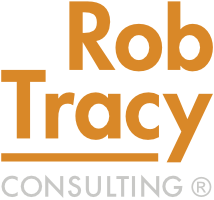Many manufacturing executives consider their annual audit to be a process that adds little value and distracts from management’s priorities. However, despite time-consuming procedures that are part of every audit due to regulatory and professional standards, a good auditor can tailor the process based on your needs and provide valuable insights to your leadership team. So, how do you get those helpful results?
Reset your (and your auditors’) thinking
Your customers don’t purchase your products blindly; they expect value and price increases to be justified. Now, think about your relationship with your auditors. Are you receiving value? Or are you just receiving routine number checks with annual fee increases?
Part of expecting more is asking for more. If you don’t express your goals, then your auditors are likely going to assume you’re receiving what you need. Auditors spend their days examining the inner workings of many different businesses, giving them a fresh perspective — both high above the trees and down in the weeds — that can both satisfy audit objectives and deepen your understanding of your business and industry. Consider making the following requests.
Engage in a planning process
Ask for a planning meeting to discuss the upcoming audit, so you can share concerns or issues that may be on your mind. It can be helpful to let your auditors know specific areas where you would value their insight as they plan how to engage your team and review all aspects of your operations in the coming months.
Request a closing meeting to review findings
Ask for a closing meeting at the end of the audit to revisit the issues raised before the audit began and to see how your performance compares to industry peers. The auditors’ observations can help your team see things through a different lens, which can lead to new ideas, innovation, and improvement.
Is it really that simple?
Is it simple to lift 300 pounds? Yes — but that doesn’t mean it’s easy. To make it a little easier, consider these sample discussion topics specific to manufacturers:
- Profitability — What really drives your profitability? For many manufacturers, there’s a disconnect between job-level profit measurement and the bottom line. Aligning the perspectives of sales, operations, and finance around the elements that drive profitability can pay big dividends.
- Capacity management — Capacity management not only impacts how inventories are valued and costing rates are set, it may also be the leading driver of profitability. If you aren’t already collecting objective data in this area, ask your auditors about the metrics they used during the audit process and the metrics used by other companies.
- Working capital efficiency — Excess working capital has a cost over time but can often be improved with focused efforts. Specific questions might include:
- How does our inventory turnover (e., raw material, WIP, finished goods) compare to industry averages?
- How does our receivables collection (e., days sales outstanding) compare to our stated terms?
- How does our cash cycle compare to others in our industry?
- Capital structure — For a privately held business, the right capital structure is critical to striking a healthy balance between risk and return. Too much debt can increase risk, while too little can limit opportunities. Ask your auditors for industry benchmarks to help guide you to a balanced approach.
Expect more, receive more
The above won’t necessarily make your annual audit any more enjoyable, but it can certainly increase the effectiveness and benefits of the time and money you’re investing in the process. Your auditor can be a valuable resource — sometimes you just have to ask.
For more information on effective audits, contact Christopher Weaver at christopher.weaver@CLAconnect.com or Kevin Cooke at kevin.c.cooke@CLAconnect.com.
The information contained herein is general in nature and is not intended, and should not be construed, as legal, accounting, investment, or tax advice or opinion provided by CliftonLarsonAllen LLP (CliftonLarsonAllen) to the reader. For more information, visit CLAconnect.com.
CLA exists to create opportunities for our clients, our people, and our communities through our industry-focused wealth advisory, outsourcing, audit, tax, and consulting services. Investment advisory services are offered through CliftonLarsonAllen Wealth Advisors, LLC, an SEC-registered investment advisor.
